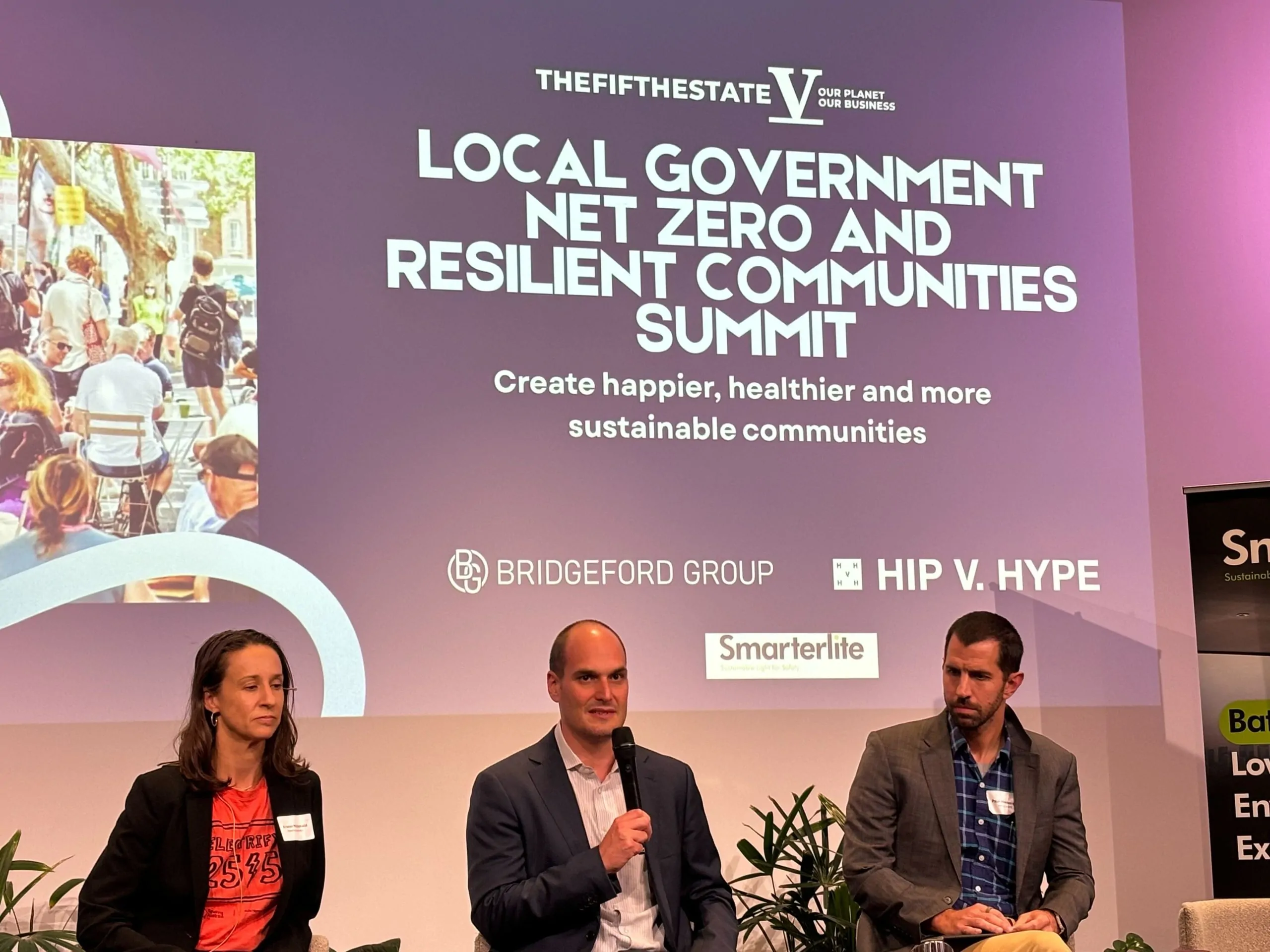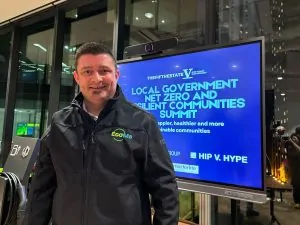
As a supplier to many councils, Eco Ms was proud to be an Exhibition Sponsor at The Fifth Estate’s Local Government, Net Zero and Resilience Communities Summit, held yesterday at the Greenhouse. It was a full house as councils, experts, and stakeholders came together to address the urgent challenge of achieving net zero and building community resilience. The program highlighted both the scale of the issues and the opportunities ahead, with candid conversations on funding gaps, electrification, resilience, planning, and engagement.

Councils: Micro and Macro Opportunities
Paul Brown, Managing Director of Ironbark Sustainability, opened with a reminder that councils receive far less than they need to meet ambitious sustainability goals, particularly around electrification. With 537 councils across Australia, each facing unique pressures, local government stands at the crossroads of micro challenges and macro opportunities for the nation’s net zero transition.
Electrifying Cities and Building Capability
Rod Kington, Technical Services Manager at City of Sydney, outlined how the council is electrifying its portfolio, with aquatics facilities leading the way. By building internal capability and installing energy-efficient heat pumps at the Andrew Boy Charlton pool, Sydney is advancing its climate goals while openly sharing insights for others to replicate.
The Human Foundations of Resilience
Michael Spencer from Monash University’s Green Lab stressed that resilience is as much about people as it is about infrastructure. Success depends on trust, collaboration, and institutions that can unite councils, communities, governments, and business groups to unlock funding and deliver change.
From Strategy to Results
Nick Tassigiannakis, Managing Director of Bridgeford, demonstrated how partial electrification strategies can deliver strong early results and lay the foundation for full net zero pathways. Pat Whitford, from the Illawarra Shoalhaven Joint Organisation, showed how four councils, Kiama, Shellharbour, Shoalhaven, and Wollongong, are leveraging regional collaboration to deliver education programs and accelerate community-wide progress.
Planning, Growth, and Housing Pressures
Queensland’s population boom and the 2032 Olympics are intensifying housing and planning pressures. Nicole Bennetts of the Planning Institute of Australia highlighted the delicate balance between densification, community resistance, and developer ambition, particularly in inner-city suburbs like West End.
Designing for Communities, Affordably
David Tickle of Hassell showcased placemaking that delivers healthy, liveable, and sustainable outcomes through collaboration, such as in Pyrmont and Marrickville. At Blacktown City Council, architect Ben Slee showed how NSW’s largest LGA is proving that sustainable design can also be affordable.
Financing the “Giant Elephant”
Funding remains the sector’s biggest challenge. With councils receiving just 4% of national tax revenue, Stella Whittaker of Haskoning called for creative financing solutions, the “art of the possible”, to ensure ideas are implemented rather than left, as she put it, “the Cinderella that never gets to the ball.”
Partnering for Scale and Impact
The closing session focused on how communities can work with councils to scale change. Anthony Weinberg (Waverley, Woollahra and Randwick councils) advice to innovators was to find a Champion within Council and start with pilots to get a proof of concept. Programs like Solar My Schools proved how local initiatives can spread far beyond their original boundaries.
The Big Picture
The Summit underscored one clear truth: councils are on the frontline of Australia’s climate response. Despite limited resources and rising expectations, they are pioneering scalable solutions, whether electrifying pools, financing adaptation, or creating resilient communities.
For Eco Ms, these discussions reinforced the importance of strategic asset management and optimisation as enablers of electrification, efficiency, and sustainability goals. By partnering with councils to improve building performance, Eco Ms is proud to support local government in driving Australia’s transition to net zero, one council, one community at a time.
